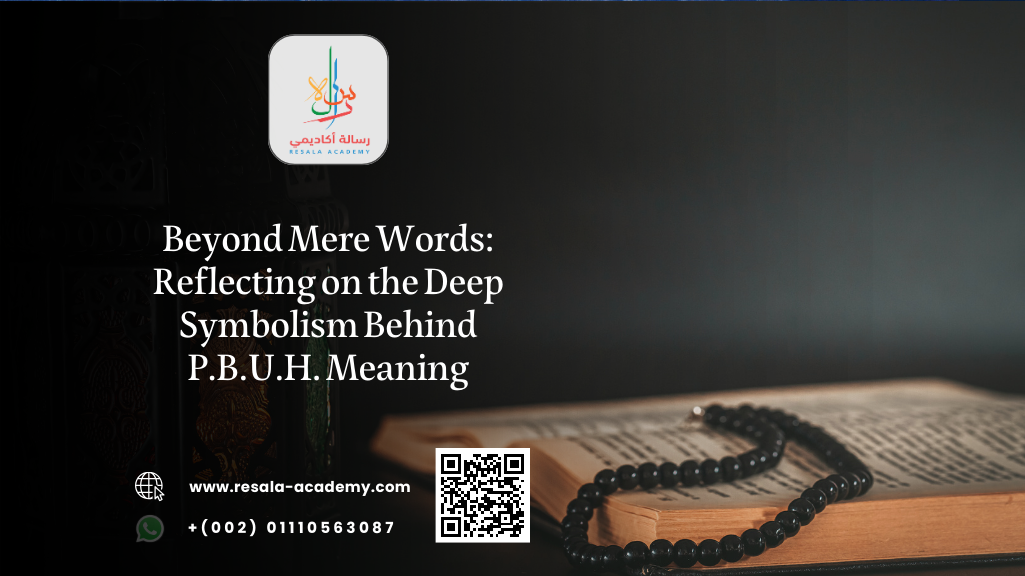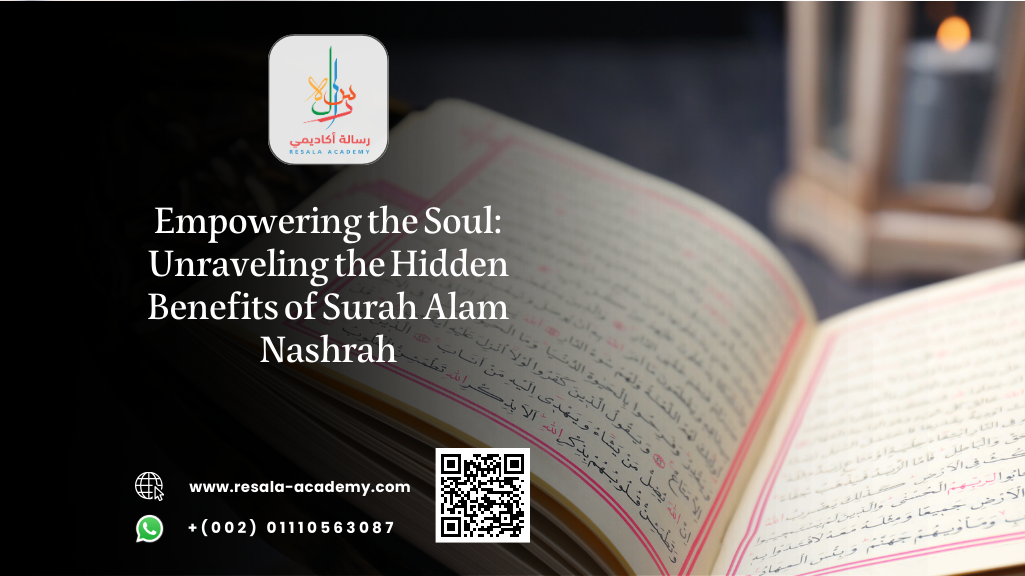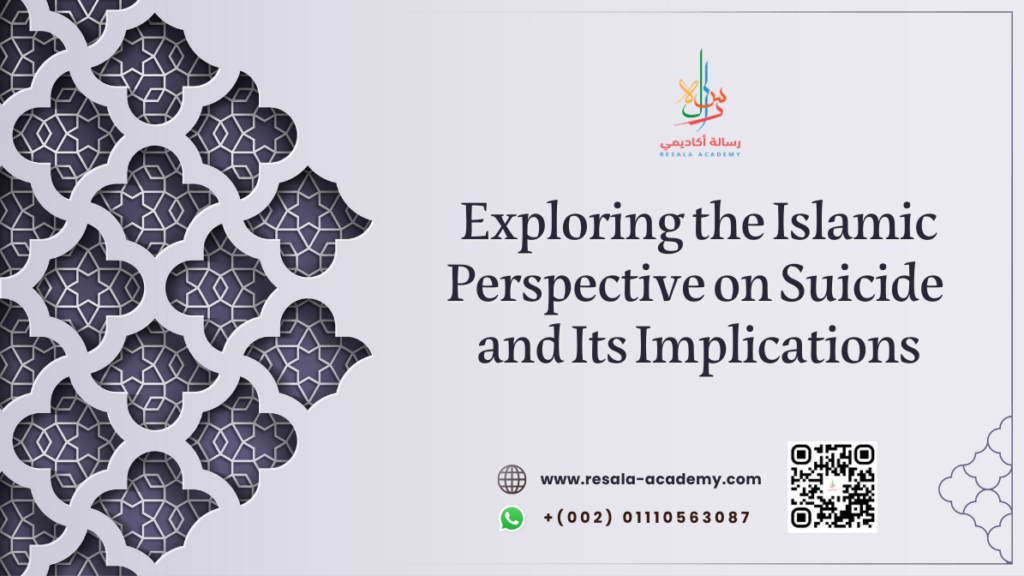Table of Contents
Beyond Mere Words: Reflecting on the Deep Symbolism Behind P.B.U.H. Meaning
In the world of religious symbolism, few abbreviations carry as much weight and significance as PBUH. You may have come across this acronym while reading about Islam or listening to a lecture on Islamic teachings. But what exactly does it mean? Beyond its mere letters lies a profound meaning that holds immense reverence for Muslims around the globe.
In this blog post, we will dive deep into the understanding of PBUH, exploring its origins, context, and significance in Islamic culture. We will also shed light on its variants and references in the Qur’an and Hadiths. So whether you are already familiar with P.B.U.H. Meaning or new to this concept altogether, join us as we unravel the layers of meaning behind these four simple letters: P.B.U.H.
Understanding the Islamic Abbreviation: PBUH
The abbreviation “PBUH” is commonly used by Muslims when referring to the Prophet Muhammad. It stands for “Peace Be Upon Him.” This phrase holds deep significance and respect in Islamic culture.
In Islam, it is believed that using this abbreviation after mentioning the Prophet’s name signifies a prayer for peace and blessings upon him. It serves as a reminder to invoke Allah’s mercy and blessings on the beloved Messenger of Allah.
The use of PBUH demonstrates reverence and humility towards the Prophet Muhammad, recognizing his importance as the final messenger of Allah. It also reflects an understanding of his role as a source of guidance, wisdom, and inspiration for Muslims around the world.
This abbreviation is widely used in written communication among Muslims, including social media posts, emails, texts, and other forms of digital communication. Its usage helps to uphold honor and respect for Prophet Muhammad while promoting unity within the Muslim community.
By understanding the meaning behind PBUH, individuals can deepen their appreciation for Prophet Muhammad’s teachings and legacy. It serves as a constant reminder to strive for peace and emulate his noble character in our daily lives.
P.B.U.H. Meaning and Significance
The meaning and significance behind PBUH, an abbreviation frequently used in Islamic texts and conversations, goes far beyond mere words. PBUH stands for “Peace Be Upon Him” and is a way to honor the Prophet Muhammad. It signifies respect, reverence, and blessings towards him.
The term PBUH acknowledges the importance of peace in Islam. It serves as a reminder that the Prophet Muhammad was not only a messenger of Allah but also a symbol of peace and harmony. By using this abbreviation, Muslims express their desire for peace to be bestowed upon the Prophet.
PBUH carries deep spiritual significance. It represents the belief that by invoking divine blessings upon someone like the Prophet Muhammad, one can attain spiritual benefits themselves. This act fosters a sense of connection with Allah and strengthens one’s faith.
Additionally, PBUH highlights humility and modesty in acknowledging the greatness of Prophet Muhammad’s character and teachings. It reminds Muslims to emulate his virtuous qualities such as compassion, patience, kindness, justice, and wisdom.
PBUH reflects Muslims’ love and admiration for their beloved prophet. Using this abbreviation is an expression of devotion towards him while recognizing his pivotal role in Islam’s foundation.
Understanding these meanings sheds light on why PBUH holds significant reverence within Islamic culture and language.
The Context and Usage of PBUH
The context and usage of PBUH, an abbreviation for “Peace Be Upon Him,” holds great significance in the Islamic faith. It is a phrase used to show respect when mentioning or referring to prophets, especially Prophet Muhammad.
In Islamic teachings, it is believed that Prophet Muhammad was chosen by Allah as the final messenger to guide humanity towards righteousness and peace. As such, Muslims hold him in high regard and use PBUH as a way of honoring his name.
The usage of PBUH goes beyond mere words; it reflects a deep sense of reverence and humility towards the prophet. Muslims believe that by using this phrase, they are invoking blessings upon him and seeking divine mercy for themselves.
PBUH is commonly used in written texts such as books, articles, social media posts, or even personal messages among Muslims worldwide. Its usage serves as a reminder to always speak about Prophet Muhammad with utmost respect and honor.
This practice also extends to spoken conversations among Muslims where saying “Peace Be Upon Him” after mentioning the prophet’s name has become customary. It reinforces the belief that showing reverence for Prophet Muhammad is not limited to writing but should be reflected in our speech as well.
By understanding the context and proper usage of PBUH, we can appreciate its deeper symbolism within Islam – reminding us to approach discussions about Prophet Muhammad with respect and honor at all times.
Variants and References to PBUH
The phrase “PBUH” is the most commonly used abbreviation for Prophet Muhammad’s honorific title, “Peace Be Upon Him.” However, it is important to note that there are various other variants and references used to show respect towards the Prophet in different contexts.
There are several variations of this honorific term. For instance, “Alayhis Salam” (AS) is often used when referring to prophets mentioned in Islamic scriptures. Similarly, “Sallallahu Alaihi Wasallam” (SAW) or simply “SAW” can also be seen as an alternative way of expressing respect.
The usage of these variants extends beyond Hadiths as well. In Hadith literature, you may come across phrases such as “Radiallahu Anhu/Anha/Anhum” which means “May Allah be pleased with him/her/them.” This expression is commonly used when mentioning companions of the Prophet or individuals who played a significant role in Islam’s early history.
Moreover, Arabic-speaking Muslims around the world use additional abbreviations depending on their cultural backgrounds. Some examples include SAAWS (Salla Allahu Alayhi Wa Sallam), SAS (Salawatullahi ‘alaih), or SAWSM (Salla Allahu ‘alayhi wa salim). These variations reflect regional linguistic customs while still conveying reverence for Prophet Muhammad.
It’s worth noting that understanding and respecting these variants allows us to appreciate diverse cultural expressions within the Muslim community while maintaining unity through our shared love for the Prophet Muhammad.
Variants of PBUH
There are various variants of the abbreviation PBUH (peace be upon him) used to show respect when referring to prophets. Here are some common variants:
1. SAW: This variant stands for “Salla Allahu Alayhi Wa Sallam,” which translates to “May Allah bless him and grant him peace.” It is commonly used after mentioning Prophet Muhammad.
2. AS: Short for “Alayhis Salam,” which means “Peace be upon him.” This variant is often used when referring to other prophets like Ibrahim (Abraham), Musa (Moses), or Isa (Jesus).
3. RA: An abbreviation of “Rahimahullah” meaning, “May Allah have mercy on him.” It is commonly used after mentioning deceased scholars or pious individuals.
4. SAWS: Derived from the acronym combining both SAW and AS, it represents an extended form of respect by using both phrases together.
These variations reflect different cultural and linguistic traditions within the Islamic world but serve a similar purpose – expressing reverence towards prophets and righteous individuals mentioned in religious texts.
It’s essential to understand these variants correctly within their specific contexts as they hold deep symbolic significance in Islamic theology and practice. Their usage reinforces the importance of honoring those who played crucial roles in spreading divine guidance throughout history.
The Importance and Ruling on Abbreviating the Phrase
– Acknowledging the importance of Prophet Muhammad, peace be upon him (PBUH), is a fundamental aspect of Islamic faith. The phrase “peace be upon him” serves as a way to express respect and honor for the Prophet.
– Abbreviating this phrase as PBUH has become common in written form, especially in online communication platforms where character limits are imposed. This abbreviation allows Muslims to convey their reverence for the Prophet while saving space.
– Scholars differ on whether it is permissible to abbreviate this sacred phrase. Some argue that it may diminish its significance or show a lack of proper respect. Others believe that as long as it is understood by readers and used with sincere intentions, abbreviating PBUH can still convey reverence.
– Individuals should consider their understanding and intention when deciding whether or not to use the abbreviation. It is important to approach this issue with sensitivity and awareness of its spiritual implications.
Remember, understanding the context behind abbreviations like PBUH helps foster respectful dialogue about religious practices within diverse communities!
Resala Academy Offers Online Islamic Classes
Resala Academy, a renowned institution for Islamic education, is now offering online Islamic classes. To provide accessible and comprehensive learning opportunities to individuals across the globe, Resala Academy has expanded its reach through virtual platforms.
Through these online classes, students can benefit from expert instructors who have in-depth knowledge and understanding of various Islamic subjects. The courses cover a wide range of topics including Qur’anic studies, Hadith sciences, Fiqh (Islamic jurisprudence), Tafsir (interpretation of the Qur’an), and much more.
The academy ensures that the online classes are conducted interactively and engagingly to facilitate effective learning. Students have the opportunity to interact with their instructors and classmates through discussion forums and live sessions. This allows for a dynamic exchange of ideas and promotes a deeper understanding of the subject matter.
One of the key advantages of enrolling in Resala Academy’s online Islamic classes is flexibility. Students can access course materials at their convenience without being restricted by time or location. Whether you are a working professional or residing in a different time zone, you can still pursue your passion for gaining knowledge about Islam.
By offering online Islamic classes, Resala Academy aims to empower individuals with authentic religious education regardless of geographical barriers. So why wait? Enroll today and embark on your journey towards enhancing your understanding of Islam through quality educational resources provided by Resala Academy!
FAQs
1. What does PBUH mean?
PBUH is an abbreviation for “Peace Be Upon Him”. It is a phrase commonly used by Muslims when mentioning the Prophet Muhammad. It is a way of showing respect and reverence for him.
2. Why do Muslims use PBUH?
Muslims use PBUH as a sign of love and admiration for Prophet Muhammad, acknowledging his status as the last messenger of Allah. By using this phrase, they hope to invoke blessings upon him and show their deep respect.
3. How should PBUH be written or pronounced?
PBUH can be written in various ways, including p.b.u.h., or even sallallahu alayhi wa sallam (meaning peace and blessings be upon him). In terms of pronunciation, it is often spoken as “peace be upon him” when used in conversation or public speeches.
4. Is it necessary to use PBUH every time the Prophet’s name is mentioned?
While there is no strict rule about using PBUH every time the Prophet’s name is mentioned, many Muslims choose to include it out of reverence. However, its usage may vary depending on cultural practices and personal preferences.
Conclusion
The abbreviation PBUH holds deep symbolism and significance in Islamic culture. It is used to honor and show respect for the Prophet Muhammad, peace be upon him. The phrase serves as a reminder of his revered status as the final messenger of Allah.
Understanding the meaning and context behind PBUH allows us to appreciate its importance in Islamic texts such as the Qur’an and Hadiths. It is also widely used by Muslims when mentioning or referring to the Prophet Muhammad, both verbally and in written form.
While there are variants of PBUH used in different languages, such as SAW (Salla Allahu Alayhi Wasallam) in Arabic, they all convey the same sentiment of reverence towards the Prophet.
It’s important to note that abbreviating PBUH is not mandatory but rather a matter of personal choice for individuals. Some may choose to use it out of love and respect for the Prophet Muhammad, while others may prefer to write or say his full title.
At Resala Academy, we understand the importance of learning about Islam comprehensively. That’s why we offer online Islamic classes where students can deepen their knowledge of various aspects of Islam taught by qualified instructors.
If you have any questions or want more information about our online Islamic classes at Resala Academy, please visit our website or contact our team directly. We are here to support your journey towards understanding Islam better.
Thank you for taking the time to explore this topic with us. May we all continue to seek knowledge and strive towards living a life that reflects true devotion to Allah and His beloved Prophet Muhammad (PBUH).




